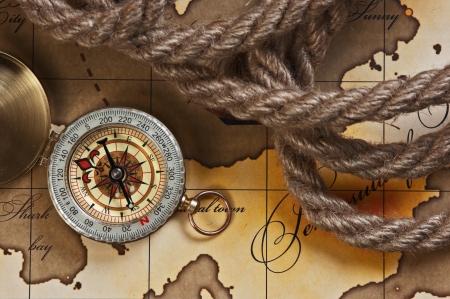Introduction: The British Lens on the Stars
Throughout the centuries, the British Isles have fostered a profound and enduring fascination with astrology, weaving celestial wisdom into the very fabric of national consciousness. From the ancient druids’ reverence for cosmic cycles to Elizabethan court astrologers guiding monarchs’ fates, Britain’s relationship with the stars is more than mere superstition—it is a living tradition shaped by history, culture, and identity. Today, interpreting birth charts through a distinctively British historical perspective allows us to see not only our individual destinies but also how collective experience informs personal symbolism. In this article, we will explore how echoes of British history—its triumphs, upheavals, and cultural shifts—continue to influence the way modern astrologers across the United Kingdom read and understand the natal chart, offering insights that are both timeless and uniquely local.
2. A Royal Legacy: Monarchs, Politics, and the Rise of Astrology
The rich tapestry of British history has woven astrology deeply into the nation’s cultural fabric, particularly through its monarchy and turbulent political chapters. From the Tudor dynasty’s fascination with celestial omens to Queen Victoria’s era of social transformation, astrology found both patronage and purpose at the highest levels of society. Monarchs, ever mindful of their divine right to rule, frequently consulted astrologers for guidance on matters ranging from coronations to matters of statecraft. This royal endorsement elevated astrology from mere superstition to a respected tool for navigating the uncertainties of rule.
During periods of political upheaval—be it the English Civil War or the Glorious Revolution—astrology offered solace and answers in an age marked by uncertainty. Court astrologers such as John Dee became household names, blending mystical insight with early scientific inquiry. The astrological birth chart, or ‘natal chart’, began to be viewed not only as a personal tool but also as a means to interpret the fortunes of kingdoms and their rulers. As these practices filtered down through society, they shaped how generations of Britons understood destiny, leadership, and personal fate.
The Impact of Key Historical Periods
| Era | Royal Influence | Astrological Development |
|---|---|---|
| Tudor Period | Henry VIII and Elizabeth I consulted astrologers; astrology seen as vital to political strategy. | Astrology integrated into court life; increased public interest in horoscopes and planetary influences. |
| Stuart Era | Kings like James I publicly debated astrologys merits; some suspicion but continued private use. | Rise of pamphlets and astrological almanacs; astrology intertwined with religious conflict and prophecy. |
| Victorian Age | Queen Victoria’s reign saw a revival in spiritualism; astrology flourished among intellectual circles. | Birth charts used for matchmaking, career guidance, and understanding national events. |
This royal legacy endures in modern British astrological interpretation. Contemporary readings often reflect themes that originated in these historical contexts: questions of authority, duty, and national identity remain central motifs. For those who study birth charts today, there is a conscious echo of Britain’s past—a recognition that one’s personal stars are inseparable from the broader narrative of monarchy and nationhood.

3. Astrology and the British Psyche: Cultural Values in Chart Interpretation
British history, with its deep-seated traditions and enduring social mores, has left an indelible mark on the way astrologers interpret birth charts within the United Kingdom. The national character, often defined by qualities such as stoicism, wit, and reserve, finds subtle yet profound expression in astrological practice. When examining planetary placements, British astrologers tend to infuse their readings with interpretations that echo these classic values, creating a uniquely localised approach to chart analysis.
For instance, stoicism—a trait celebrated since the days of Queen Elizabeth I and the steadfastness shown during the Blitz—often colours the reading of Saturn’s influence. Where some traditions might view Saturn’s restrictions as purely negative, British interpretations frequently emphasise resilience, patience, and a quiet strength in adversity. A native with strong Saturnian placements might be counselled to cultivate ‘stiff upper lip’ resolve, embracing challenges as character-forming opportunities rather than mere burdens.
The celebrated British wit, honed in drawing rooms and literature alike, also shapes astrological language. Mercury’s position is not just about communication but is assessed for its sharpness of mind and subtlety of humour—a nod to the likes of Oscar Wilde or Jane Austen. Astrologers may encourage those with prominent Mercury aspects to use their intellect not only for practical purposes but also as a means of social navigation and gentle satire, reflecting a culture where clever repartee is a cherished social skill.
Similarly, reserve, an attribute woven into the fabric of British society from Victorian etiquette to modern understatement, influences how emotional planets like the Moon and Venus are interpreted. Rather than being seen solely as indicators of emotionality or affection, their placements are often viewed through a lens that values composure and discretion. Astrological advice may thus encourage a balance between heartfelt connection and measured expression, aligning with a preference for subtlety over overt display.
This uniquely British mode of interpretation serves not only to ground astrology in local realities but also enriches it with layers of historical meaning. It invites those seeking insight from their birth charts to engage with their heritage—and perhaps find pride and understanding in traits that have long defined the British spirit.
4. Eclipses, Empire, and the Evolution of Astrological Practice
The history of astrology in Britain cannot be separated from the dramatic events that shaped both its society and its empire. As the British Empire expanded across continents, so too did the influence and interpretation of celestial phenomena such as eclipses and comets. In British tradition, these cosmic events were often seen as omens—heralds of great change or indicators of royal fortunes. The birth charts of monarchs and key historical figures were meticulously cast, their destinies read through the lens of the heavens.
The Royal Fascination with Eclipses and Omens
From the Tudor courts to Victorian drawing rooms, eclipses and unusual celestial sightings were not merely astronomical curiosities; they were interpreted as direct commentaries on earthly affairs. Monarchs would consult court astrologers before major decisions, seeking guidance on wars, marriages, and statecraft. This tradition embedded a sense of drama and gravitas into the reading of birth charts—a legacy that still echoes in modern British astrological practice.
Key Historical Celestial Events and Their Impact
| Celestial Event | Historical Context | Astrological Interpretation |
|---|---|---|
| Solar Eclipse (1715) | Early Georgian era, scientific revolution | Seen as heralding enlightenment and new beginnings in national identity |
| Comet of 1066 (Halley’s Comet) | Norman Conquest | Regarded as an omen for dramatic political upheaval and regime change |
| Lunar Eclipse (1837) | Ascension of Queen Victoria | Interpreted as a signifier of a new era and transformation in monarchy |
Astrology and Empire: Expansion of Interpretive Traditions
The reach of the British Empire facilitated cultural exchanges, introducing British astrologers to techniques from India, China, and the Middle East. These influences enriched local interpretations—British birth chart readings began to integrate planetary periods (dasha) from Vedic astrology or timing methods inspired by Arabic traditions. Thus, modern British astrology is a tapestry woven from both native symbolism and global wisdom.
The Lasting Legacy in Modern Charts
Today’s British astrologers continue to imbue eclipse points or notable comet paths with significance when interpreting natal charts. The emphasis on royal horoscopes persists—not only for members of the royal family but also for public figures whose lives are viewed through a collective lens. This uniquely British blend of reverence for history, openness to global influences, and fascination with destiny ensures that every birth chart is read with both tradition and innovation at heart.
5. Modern British Astrology: Contemporary Practices Informed by the Past
Today’s British astrologers stand at a unique crossroads, blending centuries-old tradition with modern methods to interpret birth charts for their clients. The influence of Britain’s rich historical tapestry—woven from Celtic lore, medieval scholarship, and Victorian esoterica—remains evident in contemporary astrological practice. Modern practitioners often draw upon this heritage, infusing readings with the gravitas and depth that have become hallmarks of British astrology.
In current practice, many astrologers approach each birth chart not merely as a collection of planetary positions but as a living document shaped by both individual destiny and the collective story of the nation. This perspective is rooted in the British tendency to honour tradition while embracing innovation—a characteristic visible in how astrologers integrate historical symbolism with cutting-edge techniques such as psychological astrology or computer-generated chart analysis.
For example, when exploring a client’s Sun sign or Ascendant, a British astrologer might reference archetypal figures from history or literature—be it Shakespearean heroes or legendary monarchs—to illustrate qualities reflected in the chart. At the same time, they utilise contemporary language and psychological insights, ensuring that ancient wisdom resonates with modern sensibilities. This dual approach allows for a reading that is both deeply personal and culturally grounded.
Furthermore, today’s British astrology often acknowledges the social and political shifts that have shaped modern Britain—from the suffragette movement to post-war resilience. Astrologers may weave these collective experiences into their interpretations, recognising that personal destiny is inextricably linked to broader historical currents. In doing so, they provide clients not only with self-understanding but also with a sense of place within the ongoing story of Britain itself.
This harmonious marriage of past and present ensures that modern British astrology remains relevant, insightful, and uniquely attuned to the needs of its diverse clientele. By respecting tradition while welcoming new ideas, today’s practitioners continue to enrich the art of birth chart interpretation—honouring both individual paths and the enduring spirit of British history.
6. Conclusion: The Enduring Influence of History on British Astrological Insight
As we reflect upon the intricate tapestry woven by centuries of British history, it becomes clear that its influence on astrological interpretations is both profound and enduring. The United Kingdom’s unique journey—from the mystical traditions of the Druids, through the intellectual vigour of the Enlightenment, to the vibrant diversity of modern society—continues to shape the way astrologers approach birth charts today. This historical legacy is not merely a backdrop but an active ingredient in how astrology is practised, understood, and appreciated across Britain.
For seekers and practitioners alike, this means that every birth chart interpretation is subtly imbued with echoes of the past. The British penchant for tradition, respect for scholarly debate, and openness to innovation all play their part in creating a distinctively local flavour within astrological readings. Whether consulting the stars for personal guidance or offering professional counsel, astrologers in the UK operate within a context steeped in both reverence for heritage and readiness for change.
Furthermore, understanding these historical undercurrents enriches one’s engagement with astrology itself. Clients are often comforted by the stability provided by long-standing customs, while also benefitting from progressive insights that reflect contemporary British values. This harmonious blending ensures that astrology remains relevant and responsive to the needs of modern Britons, providing both continuity and adaptability as society evolves.
In sum, British history does not simply inform astrological practice—it animates it. Each chart reading carries whispers of monarchs and mystics, philosophers and poets, all contributing to an interpretive tradition as dynamic as it is venerable. For those seeking wisdom in the stars or offering guidance to others, recognising this ongoing interplay between past and present offers both depth and authenticity to their astrological journey.


